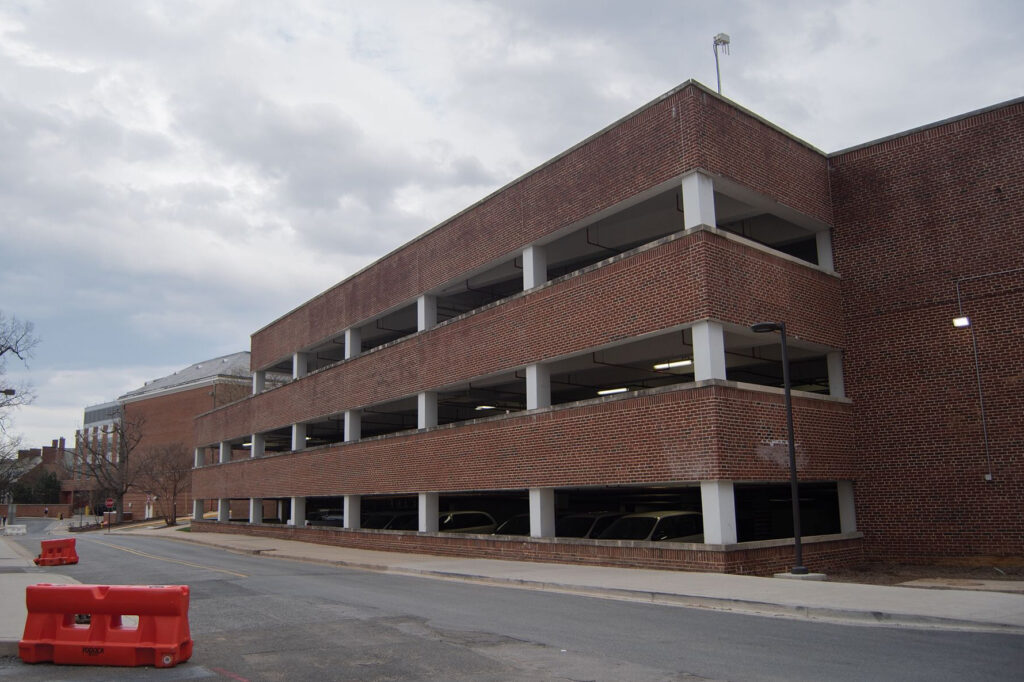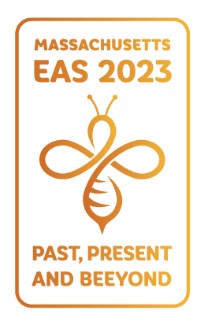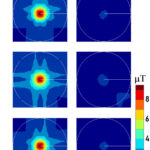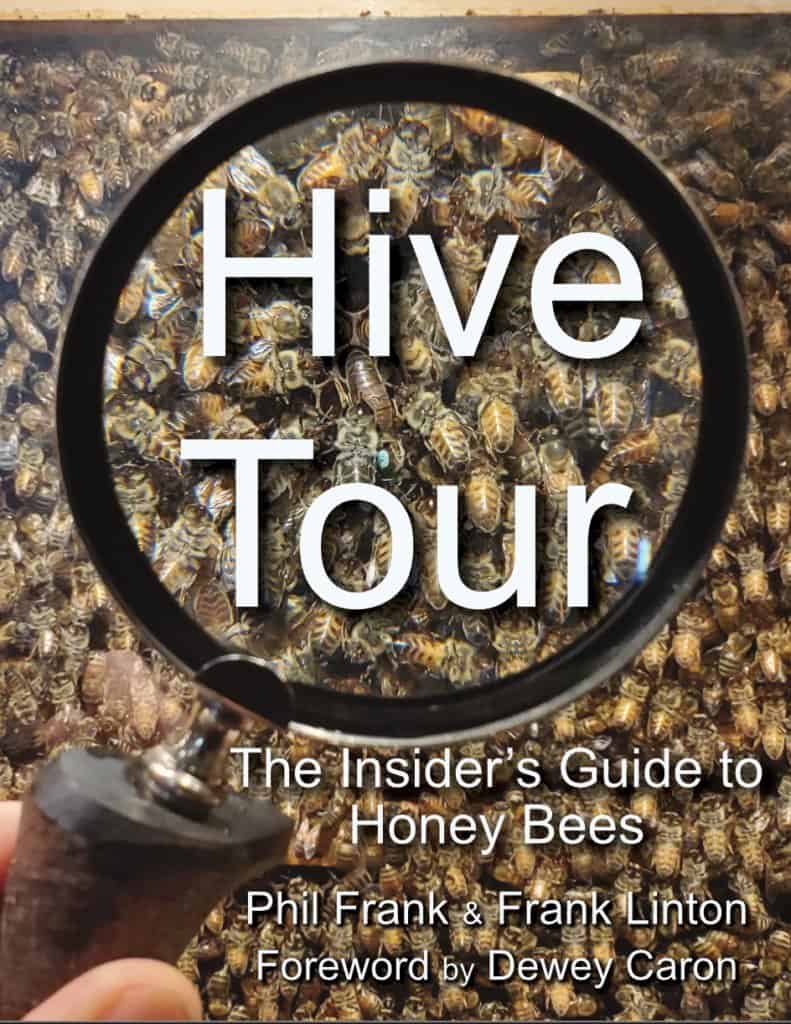
Printable edition
President's Message
- President’s Message, June 2023
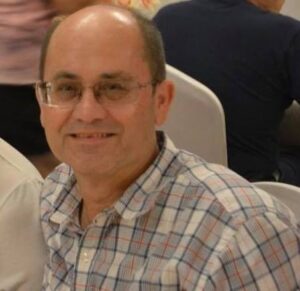
Hello fellow beekeepers,
This is not going to be a typical “this is your president” letter. Instead, I would like to share a quick “lessons learned” story with you about how my spring has been going. As many of you may or may not know, I run a few colonies. My numbers are in the range of 400 to 500 depending on the time of year, with Spring typically being on the high end of that range.
My story starts like most springs: I’m making splits, starting to see swarms, and generally being as busy as my growing colonies. Recently though, things took a sharp left turn. I experienced what I would consider to be a massive die off at one of my out yards (I probably have more than 15). As you can imagine, no one ever wants to encounter this, and I was very upset to find it. As part of my livelihood, I depend on having these units for pollination. Seeing mass die offs is never a good thing, and I promptly contacted our state apiarist, Cybil Preston.
I want to be very honest after first speaking with Cybil: my feelings were quite hurt. As I was reporting what I consider to be a massive die off from what I believed to be a pesticide exposure, she began to ask me about the nutrition of my colonies. She further asked me about my mite loads and disease status. Folks, she peppered me with questions, and I was sincerely offended. I’ve been keeping bees my whole life, why is this the conversation we are having? I’ve got piles of dead bees in front of my hives.
Luckily, after a few deep breaths and a few more phone calls, my blood pressure was back in a normal range. And so, these are the three things I’d like to share.
- Spring is a wonderful and very forgiving time of year. Luckily, my colonies did not experience 100% die off. They may be set back, and populations may be diminished but they’re not completely lost. If my colonies experienced a pesticide exposure, luckily the exposure time was limited and the colonies are strong enough to rebound. I’ll say it again: Spring is a wonderful time of year. Strong, growing colonies can take a setback in the Spring. All is not lost. I wish you all the best spring has to offer (and no exposures). 😊
- While Cybil initially hurt my feelings, I was able to realize that she is helping me be the best beekeeper I can possibly be. She is going through a mental checklist to help me determine the reasons for my losses. She is asking me questions, she is helping me brainstorm, and ultimately, she is doing her job to ensure the health and well-being of all of the bees in the state of Maryland. At the end of the day, she wants to see healthy bees, and successful beekeepers. Thank you Cybil for everything you do for me and all the beekeepers across Maryland. Keep up the good work!!!
- Equally as important, I had an opportunity to discuss the situation with a fellow beekeeper, and this brings me to my third point. I am very grateful for all of the camaraderie that MSBA brings to my life. Talking through the situation helped me slow down. Being able to see what Cybil was aiming at really brought me a sense of ease. Ultimately, my friendships and connections have made me a better beekeeper. The benefits of MSBA and local associations are immeasurable. You’ll never know when you’ll need ‘em or when you just might be the sounding board someone else needs. I’ll never regret being active with my membership! I encourage you to do the same.
I have tons of work to do as I’m sure many of you do as well so I’ll close.
All the best,
Fred
P.S. Read further about EAS 2023 in Massachusetts. It is sure to be a great time. More importantly, check out the preparations and updates for EAS 2024 IN MARYLAND from David. I can’t wait!
[Return to June 2023 BeeLine newsletter]
Notes from the Apiary Inspector
- Notes from the Apiary Inspector
Cybil Preston, State Apiary Inspector, MDA
Happy Summer!
Weather has been SUPER unpredictable, with fluctuating temps from the 50's to the 90's. What a crazy Spring! Original swarms and residual swarms seem to be a very common theme this year... along with "I think I am queenless."
Apiary Inspectors and inspections are in FULL swing. We had a large number of nucleus colony inspection requests: seemingly more than normal. Bees seemed to have overwintered better than last year. My thoughs on this is better varroa control.
We have seen a larger than normal number of hives suffering from Bee PMS (Parasitic Mite Syndrome) this Spring. Symptoms we are seeing include dead brood, some smelly brood, chewdown, what looked like EFB (European Foulbrood) and Sac brood. Black Shiny bees with bloated abdomens and shaking/buzzing on the frames were observed, as well: possibly Chronic Bee Paralysis Virus. Colonies were over threshold with varroa and needed to be treated.
We will again participate in the National Honeybee Survey. I am looking for beekeepers with 8 or more beehives in the same location, who would be willing and wanting to participate. Participation in the survey is free of charge: an inspector will take 1/3 cup samples of bees from each colony and beeswax for the double sampling. Tests are run on the samples and the beekeeper will get a print out and run down of hive issues and virus presence and prevalence. Anyone wishing to participate should contact me.
We have swarm traps out at several locations at both the Port of Baltimore and at BWI Thurgood Marshall Airport. The swarm lures are refreshed bi-weekly.
I would like to encourage the local Beekeeping associations and ALL beekeepers to enter Club displays and educational exhibits in The Maryland State Fair. The Maryland State Fair has not yet posted the dates for entering exhibits, however. I ASSUME it to be Sunday, August 20, 2023, from 3PM to 8PM, and Monday, August 21, 2023, from 9AM to 7PM. Honey judging will be on Tuesday \3. The dates and times of the Honey show exhibits and judging are subject to change. The MD State Fair will open on Thursday 8/24/2023 and be open til 9/10/2023. Take the summer to prepare your entries so we have a GREAT show in August! It's FAIR-iffic!
The honeybee disease detector dogs are now on VACATION till the fall when weather gets colder. Tukka has healed very well and is back to his normal crazy high strung self. They are currently spending their days snoozing and swimming.
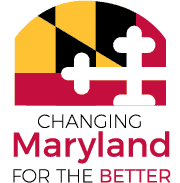
Cybil Preston
Chief Apiary Inspector
State Apiarist
EAS Certified Master Beekeeper
Maryland Department of Agriculture
50 Harry S. Truman Parkway
Annapolis, Maryland 21401
cybil.preston@maryland.gov
(410) 841-5920(O)
(410) 562-3464 (M)[Return to June 2023 BeeLine newsletter]
What You Need to Know to Participate in June 10 Meeting
- Attending 6/10 Meeting? What you NEED TO KNOW!
(please scroll down for online info)
Attending In Person:
RSVPs, parking, sign in, and lunch arrangements all need some planning if you plan on attending in person for MSBA's Spring 2023 Meeting at the UMD with special programming from the vanengelsdorp Lab!
Your RSVP is crucial if you plan on attending in College Park because we will be organizing you into groups in order to tour labs and participate in the afternoon sessions. We need to know the total of those in attendance in order to assign rooms and recruit volunteers.
Parking change: The Regents Drive garage that we usually use will be closed, but you may park for free just a bit further up the road at the Union Lane Garage next to the Stamp Student Center. Click on the image above to get directions or consult the map below.
Please sign in as soon as you arrive, and you will be given a colored name tag sticker that associates you with one of the groups for afternoon activities!
Don't mind the work in progress! The Plant Sciences Building, where we meet, will be undergoing maintenance, but the building is open! Please use any of the entrances and don't be deterred by any power washing!
Lab fundraiser: there will be a fundraising table with items for silent auction or sale, including vintage BeeCultures, ABJs, and (possibly) mite testing kits, with more planned.
Lunch plans: We will be working with Jimmy Johns to offer interested attendees box lunches costing $12 from their favorites menu. If you wish to buy lunch, please sign up before 10 AM at the sign in table! Exact change is appreciated. We are reserving nearby classroom space for us all to chow down together.
Descriptions of Afternoon Tours:
Learning on Your Feet: A Walking Lab Tour
Explore the UMD Honey Bee labs and learn how we analyze honey bee samples for parasites, diseases and viruses.
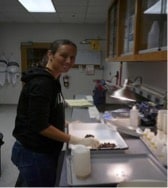
Molecular 1 Lab
See the process of removing genetic material from whole bees to be used in Molecular Lab 2
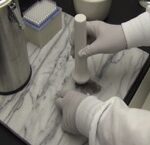
Molecular 2 Lab
Learn how we detect honey bee viruses and nosema from RNA.

Know guts, know glory! (Anatomy/dissection)
- A broad overview of internal honey bee anatomy that will highlight several physiologies/organs key to honey bee health
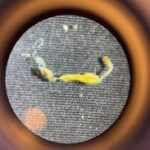
The Rebel Alliance: UMD and BIP
Learn about the mission and programs of the Bee Informed Partnership, and how the collaboration between UMD and BIP brings data to the beekeepers.
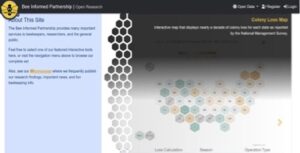
Bare your soul (Extension survey)
The purpose of this survey is to lay the groundwork for the University of Maryland Bee Lab’s extension activities for the next 2-5 years. Here we provide a host of ideas, products, services, and delivery methods and would like your input on those most needed by you to improve your beekeeping skills and the health of Maryland honey bees and other pollinators.
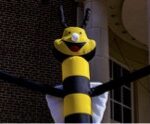
Attending Via Zoom:
All participants must have a Zoom account and be signed in to be admitted to the June 10 meeting. You can sign up for a free Zoom account in advance!
The meeting link is https://us06web.zoom.us/j/3634766759?pwd=Vm9SSWFnS0ZKRWlKdWc0YnVrQi83Zz09, Meeting ID: 363 476 6759, Passcode: 119524
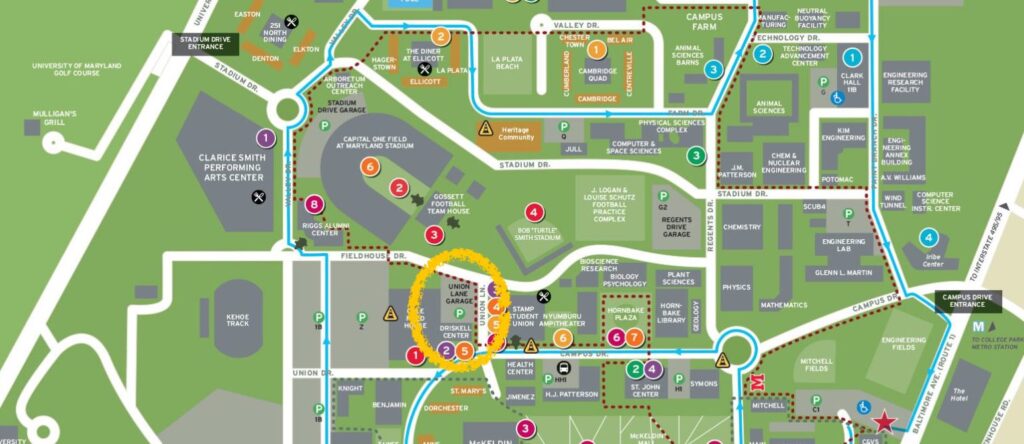
The Union Lane garage is circled in yellow. You can enter it from the same road as the Regents Garage, but it is up the hill and the entrance is on the same side of the road as the Plant Sciences Building.
[Return to June 2023 BeeLine newsletter]
EAS 2023 in Massachusetts and Maryland 2024 Info
- EAS Update: June 2023
by Clyde Strang, MSBA EAS Delegate
Whether you are new to beekeeping or a Master Beekeeper, your participation in the EAS 2023 Conference will expand your knowledge and deepen your connections with the beekeeping community.
This year's conference, Beekeeping Past, Present, and Beeyond will take place from July 31 through August 4 at the University of Massachusetts in Amherst, MA. An initial Short Course specifically designed for people who are new to beekeeping is offered during the first 2 1/2 days. Unique, informative, and entertaining lectures follow for beginning, intermediate and advanced beekeepers.
Active EAS (Eastern Apiculture Society) membership is required to attend. Registration is on line at https://members.easterapiculture.org. Registration is a two part process - meals and accommodation, and special events. There are four-room shared suites in the dormitories, a campus hotel, convenient off-campus lodging and camping.
The campus food is ranked #1 by the Princeton Review and meal tickets can be purchased during the registration process. On-campus dinners are scheduled for Thursday evening and on weekends. The annual banquet is held Friday evening. Attendees may participate in Dine Around Amherst with a local beekeeper on Tuesday night.
Special events requiring registration include queen rearing, microscopy, photography workshop, apitherapy workshop, and a cooking workshop.
Excellent speakers are scheduled including Bob Binnie, Dr. Dewey Caron, Dr. Cameron Jack, Dr. Heather Matilla, Dr. Samuel Ramsey, Dr. Tom Sealy, and many more. Topics presented range from the beginner track, bee health, and caring for bee equipment, to current research, and beekeeping as a business. An on-site apiary will allow for hands-on beekeeping covering topics including disease detection, constructing a cell builder, colony management, and bee drifting.
You are encouraged to enter your Maryland bee products in the honey show. Vendors will be on-site throughout the conference offering a large selection of items for purchase including beekeeping supplies and items crafted by local artisans.
The EAS Master Beekeeping Testing and certification process is given during the conference. This is a four-part examination. Other special events will include a Bee Olympics, auctions, and field trips.
Keep an eye out for Dr. Lorenzo Langstroth, who will make an appearance. Lots of engaging bee activities are planned for this conference, so we look forward to seeing a large gathering of Maryland beekeepers in attendance!
________________
EAS in Maryland: August 5-9, 2024
At the February meeting, the EAS 2024 Committee led by David Morris revealed that the Turf Valley Resort in Ellicott City has been selected as the site for the Maryland conference.
The Committee has also identified a conference slogan: "Think Like A Bee!"
More exciting details, including the results of the conference logo contest, will be announced at the June 10, 2023 meeting at UMD College Park and online.
There are still many opportunities to support this extraordinary educational event for beekeepers within our region and nationwide! Please reach out David Morris at davidm033@gmail.com to learn more.
[Return to June 2023 BeeLine newsletter]
More MSBA Logo Merchandise
- LOGO Merchandise
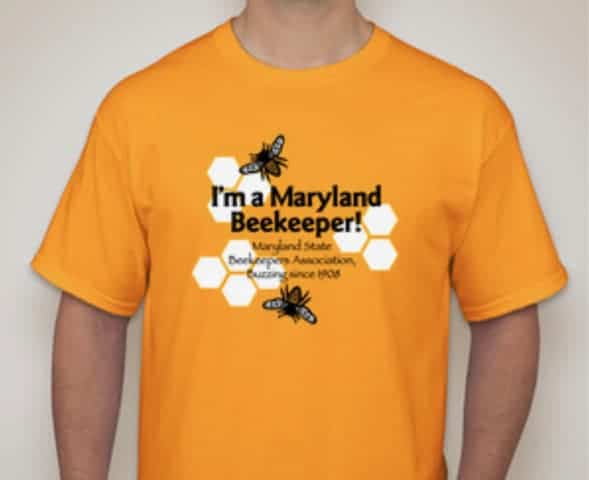
MSBA's Famous yellow T-Shirts are available by clicking HERE.
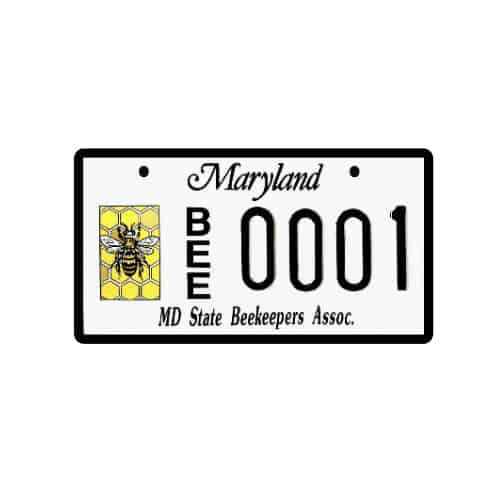
MSBA's Popular LICENSE PLATE's are available by click HERE.
NEW
Because of member demand, MSBA has created a ZAZZLE account where you can order merchandise (magnets, luggage tags, mugs, etc.) with the MSBA LOGO. ZAZZLE purchases do not monetarily benefit MSBA, but are still fun to have, and to show off your beekeeping allegiance.
https://www.zazzle.com/store/md_beekeepers



[Return to June 2023 BeeLine newsletter]
How Should We Respond to Negative Press?
- How should we respond to recent negative press about beekeeping?

by Jeff Forbes
Several recent articles in the Washngton Post have raised some concern in my eyes.
On May 3, an inaccurate and irresponsible piece appeared in the Health section, titled "What to do if you get attacked by bees? First, run away." Unfortunately, this piece included dangerously misinformed advice on both Africanized bees and how to react to a stinging incident. It included no entomologist, beekeeper, local, or medical experts.I submitted a comment trying to correct misinformation about the prevalence of Africanized bees and their behavior, but the damage was done.
An opinion piece from April 13, 2023 titled, "Backyard bees disfigure yards in ways we are only beginning to comprehend" included misinformation about impact on native pollinators (she had no evidence of her own, but sought out studies from very different environments), but most I think that author was trying to rationalize her failed first year of beekeeping and her decision not to try again the next year.
Voices from our community responded. On April 18, 2023, Marc Hoffmann wrote a contrasting opinion to first article titled, "Urban beekeeping is not driving bee decline."
Then on May 19, 2023, a Washington Post article titled "The unexpected downside of raising bees in your backyard." continued with premise that backyard beekeeping is injuring native bees based on references to scientific studies -- not one of which was done in the United States, let alone our region.
There have been positive articles about beekeeping over the years in the Washington Post, so maybe they are trying to be balanced. However, I think that if one reads the comments it is easy to see an anti-beekeeping undercurrent in the Post's commenting readers. I am concerned about what this may mean for the larger community.My fear is that anti-beekeeping factions, having lost regulation through zoning, are trying to tie together fear of climate change and species loss to urban beekeeping in order to suppress beekeeping.
I do not believe that having more countering opinion pieces in the Washington Post will have a significant effect.
Social media has the attention of the younger members of our society and that may be the best place to have some engaging education pieces.I also do not know how best to approach this, but I think that MSBA and EAS should recognize this possible threat to beekeeping and try to address it in engaging video format. With EAS 2024 and MSBA so close to our nation's capitol, I think that we can make a significant impact.
Maybe there are fellow beekeepers who are experienced in public relations and relate fields that could provide guidance and support?
What do you think?[Return to June 2023 BeeLine newsletter]
Beekeeping News and Notes
- Beekeeping News and Notes: June 2023
Beltsville Researcher Finds Low Genetic Diversity in US Honeybees
 Honey bee imports to the US have been substantially banned since 1922, causing long term concerns about the diversity and sustainability of our stocks of Apis mellifera. Current studies bear this out. Dr. Mohamed Alburaki of USDA/ARS Beltsville recently used a molecular approach, two mitochondrial DNA (mtDNA) markers (DNA specifically from a mother), to analyze approximately 1,063 bees from hobbyist and commercial beekeepers in 45 U.S. states, the District of Columbia (D.C.), and two US territories (Guam and Puerto Rico). The data showed that the nation's managed honeybee populations rely intensively on a single honeybee evolutionary lineage. In fact, 94 percent of U.S. honeybees belonged to the North Mediterranean C lineage. Data reflected that the remainder of genetic diversity belongs to the West Mediterranean M lineage (3%) and the African A lineage (3%)."The honeybee's genetic diversity [is critical] because this indicates the insect's ability to respond to disease, adaptation to environment, and productivity," said Dr. Alburaki. [link]
Honey bee imports to the US have been substantially banned since 1922, causing long term concerns about the diversity and sustainability of our stocks of Apis mellifera. Current studies bear this out. Dr. Mohamed Alburaki of USDA/ARS Beltsville recently used a molecular approach, two mitochondrial DNA (mtDNA) markers (DNA specifically from a mother), to analyze approximately 1,063 bees from hobbyist and commercial beekeepers in 45 U.S. states, the District of Columbia (D.C.), and two US territories (Guam and Puerto Rico). The data showed that the nation's managed honeybee populations rely intensively on a single honeybee evolutionary lineage. In fact, 94 percent of U.S. honeybees belonged to the North Mediterranean C lineage. Data reflected that the remainder of genetic diversity belongs to the West Mediterranean M lineage (3%) and the African A lineage (3%)."The honeybee's genetic diversity [is critical] because this indicates the insect's ability to respond to disease, adaptation to environment, and productivity," said Dr. Alburaki. [link]
General Services Administration’s Pollinator Initiative Opens Up Federal Sites to Apiaries

Making new strides with its Pollinator Initiative, the General Services Administration (GSA) has added apiaries to supported activities under its "Good Neighbor Program." The mission of the Urban Development/Good Neighbor Program is to provide GSA regional offices and their local stakeholders with the technical expertise they need to meet this responsibility around GSA projects and properties. For more information on the Good Neighbor Program, please contact frank.giblin@gsa.gov
GSA has installed honeybee hives at 11 GSA facilities across the countr, and they have awarded a one-year contract to Best Bees Company to manage the hives over the course of a year, analyze honey production from each hive, and identify the plants and landscapes that are specifically beneficial to local pollinators. This information is expected to help guide GSA's future pollinator-friendly landscape design and maintenance policies and practices. [link]
Electromagnetic Fields Impact Honey Bee Pollination Services
Whether from cell phones or power grids, beekeepers have often thought about (and received questions from the public) about the impact of electrical and electromagnetic fields on honey bee activities. In a study published in the May 12, 2023 edition of Science Advances, a group of South American researchers led by Dr. Marco A. Molina-Montenegro were able to conclude that electromagnetic fields around electrical towers have a detrimental impact on honeybee pollination, and by extension, the surrounding plant community. The group used electrical towers rather than power lines for their analyses. First they counted the number of poppies around active versus inactive towers (the latter had more) and then the the levels of a protein called HsP70 in bees—this protein has been shown to be related to stress. As expected, they found higher levels in the bees working closest to the electrical towers. [link]
Black Queen Cell Virus Found in Canadian Mosquitoes
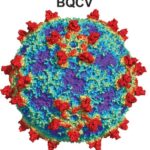 In 2020, Canadian researchers led by Cole Baril at Brandon University in Manitoba were looking for viruses and other microbes spread by mosquitoes, and did not expect to find a virus known for afflicting honey bees: black queen cell virus (BQCV). Once detected, they went to work to learn what they could about the origin and spread of the virus. As reported in the April 2023 Journal of Insect Science, BQCV is considered ubiquitous in honey bee colonies, but its transmission is not well understood. Scientists used next-generation sequencing of the species Aedes vexans to recreate a 96% complete BQCV genome, most similar, interestingly, to a Swedish strain of the virus. They also picked up fragments of varroa, microsporidian, and plant DNA, leading researchers to speculate that the mosquitoes acquired BQCV at shared nectar sources. [link]
In 2020, Canadian researchers led by Cole Baril at Brandon University in Manitoba were looking for viruses and other microbes spread by mosquitoes, and did not expect to find a virus known for afflicting honey bees: black queen cell virus (BQCV). Once detected, they went to work to learn what they could about the origin and spread of the virus. As reported in the April 2023 Journal of Insect Science, BQCV is considered ubiquitous in honey bee colonies, but its transmission is not well understood. Scientists used next-generation sequencing of the species Aedes vexans to recreate a 96% complete BQCV genome, most similar, interestingly, to a Swedish strain of the virus. They also picked up fragments of varroa, microsporidian, and plant DNA, leading researchers to speculate that the mosquitoes acquired BQCV at shared nectar sources. [link]
More Honey Bee Royalty
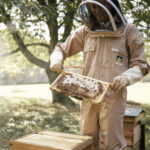 On World Bee Day (May 20th), human beekeeping "royalty" got a spotlight as Britain's Princess of Wales donned a veil, popped open a hive, and was featured on media old and new. While commenters considered this yet another addition to her (apparently considerable) list of super powers, she is just joining in a family pastime (like many of the rest of us). During her childhood, members of her family kept bees, and so do the current King and Queen Consort. Queen Elizabeth famously tapped London beekeeper John Chappie to tend a highly secured apiary at Buckingham palace: he visited to "tell the bees" at her passing. [link]
On World Bee Day (May 20th), human beekeeping "royalty" got a spotlight as Britain's Princess of Wales donned a veil, popped open a hive, and was featured on media old and new. While commenters considered this yet another addition to her (apparently considerable) list of super powers, she is just joining in a family pastime (like many of the rest of us). During her childhood, members of her family kept bees, and so do the current King and Queen Consort. Queen Elizabeth famously tapped London beekeeper John Chappie to tend a highly secured apiary at Buckingham palace: he visited to "tell the bees" at her passing. [link]
"A Short History of Beekeeping" from The History Guy
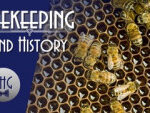 Most non-beekeeper YouTube content is cringe-worthy, but in honor of World Bee Day on May 20, The History Guy (Lance Geiger) has produced a high quality, informative and respectful 15 minute video covering the almost-10,000-year-old history of people and bees, from honey hunting to modern management. According to Geiger, "It’s certainly not forgotten history that bees play a vital role in the ecosystem and are a key to pollinating plants all over the world. Lesser known is the deep history between humans and bees that is perhaps as old as any relationship between humans and other species." [link]
Most non-beekeeper YouTube content is cringe-worthy, but in honor of World Bee Day on May 20, The History Guy (Lance Geiger) has produced a high quality, informative and respectful 15 minute video covering the almost-10,000-year-old history of people and bees, from honey hunting to modern management. According to Geiger, "It’s certainly not forgotten history that bees play a vital role in the ecosystem and are a key to pollinating plants all over the world. Lesser known is the deep history between humans and bees that is perhaps as old as any relationship between humans and other species." [link]
[Return to June 2023 BeeLine newsletter]
Spring Meeting 2023 Information
- 2023 June 10 MEETING
You are not logged in. Please login TO VIEW THE RECORDING. Thanks!
DEFINITELY put this meeting on your calendar. The morning lectures will be in person and via Zoom, but you will want to bee present for the afternoon TOUR of University of Maryland's BEE LAB.
We will post more details as they become available.
DAY: Saturday, June 10, 2023
TIME: 8:30 am - 4:00 pm
WHERE: BOTH In-Person and via ZOOM. (HYBRID)
In-Person Location: University of Maryland Plant Sciences Building Auditorium
(IF you plan to attend in-person, please RSVP at the bottom of this page.)
LEARN - TONS! Including bee nutrition and dissection
WHO - Presentations by Dr. Ramesh Sagili, Oregon State University, Dr. Dennis vanEngelsdorp, UMD, and other experts!Morning location is University of Maryland Plant Sciences Building Auditorium
2023 June 10 Meeting SCHEDULE
WHEN WHAT WHO 8:30 AM Refreshments, Coffee, Donuts, etc. 9:00 AM Opening and Welcome Fred Smith, President 9:15 AM Maryland Apiary Inspector's Report Cybil Preston, MD State Inspector VIA ZOOM 9:30 AM EAS 2024 Report David Morris , EAS 2024 President 10:00 AM Understanding and Improving Honey Bee Nutrition VIA ZOOM
Dr. Ramesh Sagili, Oregon State University11:00 AM Looking Back and Looking Ahead: 10 years at the UMD Bee Lab Dr. Dennis vanEngelsdorp, UMD 12:00 Noon Lunch Hands On Afternoon in the UMD Bee Lab
ActivityLocation in Plant Sciences Building 1:00-1:10 PM Intro: What to Expect this Afternoon
PLS 1140 1:15-1:50 PM Learning on your feet: walking lab tour PLS 4176, 4171, 3187 1:55-2:30 PM Dissection/Anatomy: Know guts, know glory! PLS 1161 2:30-2:45 PM BREAK Outside PLS 1140 2:45-3:20 PM The Rebel Alliance: UMD and BIP PLS 1130 3:25-3:40 PM Bare your soul (MD extension survey) PLS 1140 3:40-4:00 PM Panel Questions PLS 1140 4:00 PM Adjourn PLS 1140 
Dr. Ramesh Sagili is an Associate Professor in the Department of Horticulture at Oregon State University. He obtained his PhD in Entomology from Texas A&M University in 2007 specializing in honey bee research. His primary research focus is honey bee health, nutation and pollination. Ramesh initiated the creation of the Oregon Master Beekeeper Program and chaired the Oregon Governor’s Task Force on Pollination Health. His research program addresses both basic and applied questions to improve honey bee health and nutrition, hence a majority of his projects are collaborative efforts involving stakeholders (beekeepers and growers). He has authored several important research and extension publications along with an application titled “How to reduce bee poisoning from pesticides” that is being used by many beekeepers, growers and pesticide consultants/applicators in the country. He has received several awards including the Entomology Society of America Pacific Branch Research Award, Eastern Apicultural Society’s Outstanding Research Award and OSU Outreach and Engagement Award.
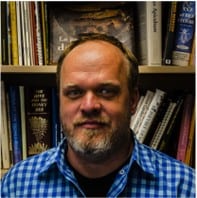
Dennis vanEngelsdorp leads the University of Maryland Bee Lab and is an Associate Professor in the UMD Department of Entomology. His research focuses on pollinator health, and is particularly intrigued with using an epidemiological approach to understanding and improving honey bee health. This approach is multi-faceted, requiring understanding both the etiology (causes) of individual bee diseases and the large scale monitoring of colony health.
Dennis is widely published and his TED talk, "a plea for bees" has been viewed 811,943 times -- click HERE and make it 811,944 views!
FUN FACTS: In his spare time Dr vanEngelsdorp loves to garden and considers himself "stereotypical Dutchman."
ZOOM INFO
Join Zoom Meeting
https://us06web.zoom.us/j/3634766759?pwd=Vm9SSWFnS0ZKRWlKdWc0YnVrQi83Zz09Meeting ID: 363 476 6759
Passcode: 119523
One tap mobile
+13052241968,,3634766759#,,,,119523# US +13092053325,,3634766759#,,,,119523# US
Dial by your location
- +1 305 224 1968 US
- +1 309 205 3325 US
- +1 312 626 6799 US (Chicago)
- +1 646 931 3860 US
- +1 929 205 6099 US (New York)
- +1 301 715 8592 US (Washington DC)
- +1 360 209 5623 US
- +1 386 347 5053 US
- +1 507 473 4847 US
- +1 564 217 2000 US
- +1 669 444 9171 US
- +1 669 900 6833 US (San Jose)
- +1 689 278 1000 US
- +1 719 359 4580 US
- +1 253 205 0468 US
- +1 253 215 8782 US (Tacoma)
- +1 346 248 7799 US (Houston)
Meeting ID: 363 476 6759
Passcode: 119523Find your local number: https://us06web.zoom.us/u/kdEiSulivW

